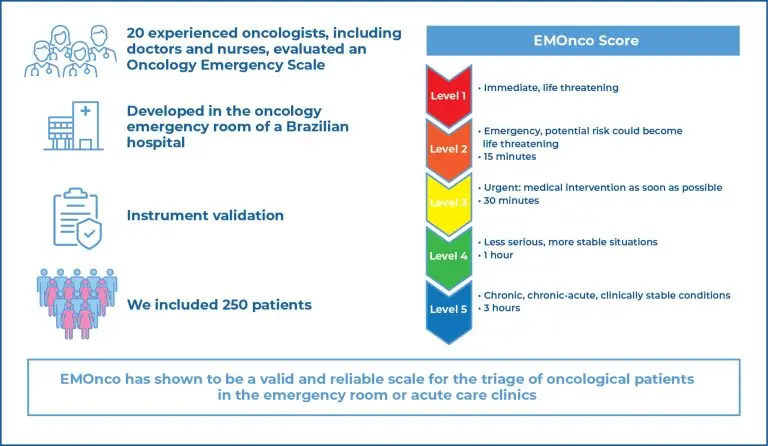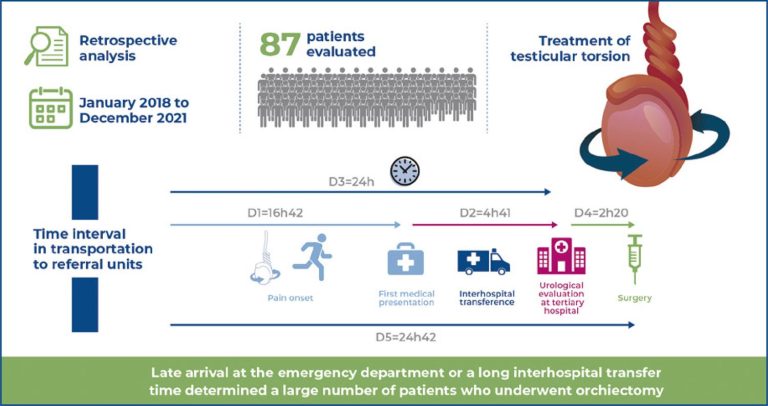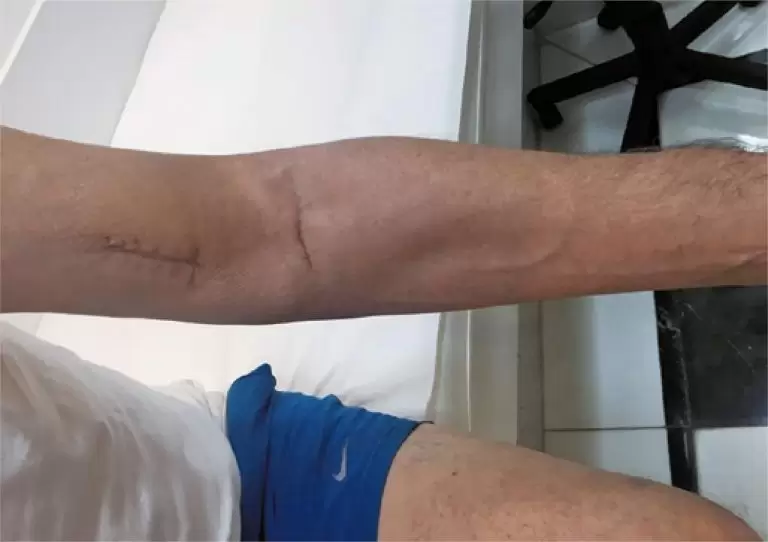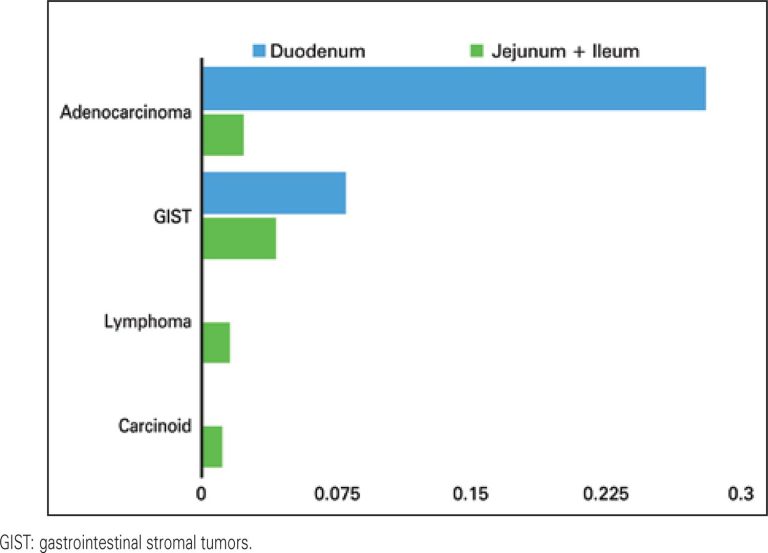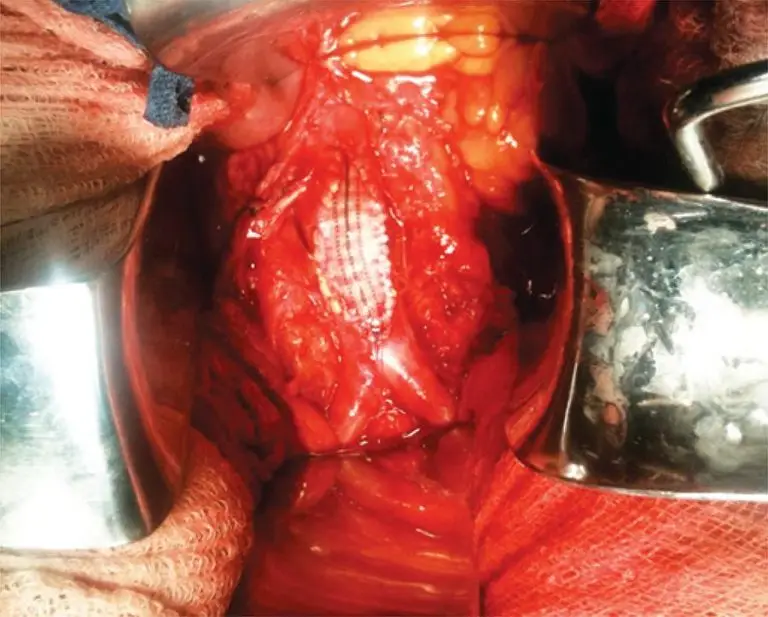07/Oct/2024
Construction and validation of the Emergency Oncology Scale (EMOnco), a risk rating protocol for the triage of cancer patients in acute care settings
DOI: 10.31744/einstein_journal/2024AO0693
Highlights EMOnco considers variables related to the cancer history and treatment. Triages patients in the emergency care in less than three minutes. Cancer patients need priority care regarding infection, and this protocol consider it. EMOnco has shown to be a valid and reliable scale for the triage of oncological patients in the emergency room or acute care clinics. ABSTRACT Objective: To validate a risk rating scale for triaging of cancer patients in emergency rooms that can identify individuals needing urgent […]
Keywords: Critical care nursing; Emergencies; Emergency medical services; Emergency nursing; Emergency services; hospital; Oncological nursing; Survey and questionnaires; Triage
06/Jun/2023
Spermatic cord torsion: a retrospective analysis
DOI: 10.31744/einstein_journal/2023AO0238
Highlights ■ Less than half of the patients (37.93%) reached first medical unit within 6h of pain onset. ■ Patients with delayed first medical attendance showed higher orchiectomy rates. ■ A high delay in seeking assistance and considerable time spent on interhospital transport were observed. ■ Late presentation (D1) and interhospital transport (D2) had a negative impact on testis preservation. ABSTRACT Objective To evaluate the time interval and possible delay in transportation to referral units for the treatment of testicular […]
Keywords: Emergencies; Orchiectomy; Spermatic cord torsion; Testis
01/Apr/2021
Hereditary angioedema: how to approach it at the emergency department?
DOI: 10.31744/einstein_journal/2021RW5498
ABSTRACT Angioedema attacks are common causes of emergency care, and due to the potential for severity, it is important that professionals who work in these services know their causes and management. The mechanisms involved in angioedema without urticaria may be histamine- or bradykinin-mediated. The most common causes of histamine-mediated angioedema are foods, medications, insect sting and idiopathic. When the mediator is bradykinin, the triggers are angiotensin-converting enzyme inhibitors and factors related to acquired angioedema with deficiency of C1-inhibitor or hereditary […]
Keywords: Abdominal pain; Angioedemas, hereditary; Asphyxia; Bradykinin; C1-inhibitor; Emergencies; Laryngeal edema
23/Jan/2020
Compartment syndrome after distal biceps brachii tendon rupture in an athlete
DOI: 10.31744/einstein_journal/2020RC4778
ABSTRACT This is a case report of a previously healthy athlete who did not use oral anticoagulant, suffered a rupture of the distal biceps brachii tendon, and evolved with arm compartment syndrome. An emergency fasciotomy and the repair of the tendon were performed. After surgery the patient had a good recovery of the paresthesia and sensibility. This complication is rare and, when reported, is usually associated with patients who use anticoagulant therapy. Due to growth of rupture of distal biceps […]
Keywords: Arm injuries/surgery; Athletic injuries; Compartment syndromes; Emergencies; Rupture/surgery; Tendon injuries/surgery
11/Dec/2015
Impact of telemedicine in hospital culture and its consequences on quality of care and safety
DOI: 10.1590/S1679-45082015GS2893
ABSTRACT Objective To describe the impact of the telemedicine application on the clinical process of care and its different effects on hospital culture and healthcare practice. Methods The concept of telemedicine through real time audio-visual coverage was implemented at two different hospitals in São Paulo: a secondary and public hospital, Hospital Municipal Dr. Moysés Deutsch, and a tertiary and private hospital, Hospital Israelita Albert Einstein. Results Data were obtained from 257 teleconsultations records over a 12-month period and were compared […]
Keywords: Emergencies; Patient safety; Quality of Health Care; Safety; Telemedicine
11/Dec/2015
Most small bowel cancers are revealed by a complication
DOI: 10.1590/S1679-45082015AO3380
ABSTRACT Objective To characterize the pattern of primary small bowel cancers in a tertiary East-European hospital. Methods A retrospective study of patients with small bowel cancers admitted to a tertiary emergency center, over the past 15 years. Results There were 57 patients with small bowel cancer, representing 0.039% of admissions and 0.059% of laparotomies. There were 37 (64.9%) men, mean age of 58 years; and 72 years for females. Out of 57 patients, 48 (84.2%) were admitted due to an […]
Keywords: Emergencies; Intestine; Neoplasms; small/pathology
01/Apr/2014
Coral reef aorta, emergency surgical: case report and literature review
DOI: 10.1590/S1679-45082014RC2772
Coral reef aorta is described as an uncommon entity characterized by the presence of coarse calcifications, which are developed in the visceral aorta. These calcifications grow toward the lumen of the artery and can result in significant stenosis, so that causing malperfusion of the lower limbs, visceral ischemia or hypertension secondary to renal involvement. We report here a case of a 54-year-old patient with coral reef aorta and symptomatic. The clinical presentation of the patient required the surgical approach. A […]
Keywords: Aorta; Aorta, abdominal; Atherosclerosis; Case reports; Emergencies; Endarterectomy; Ischemia



